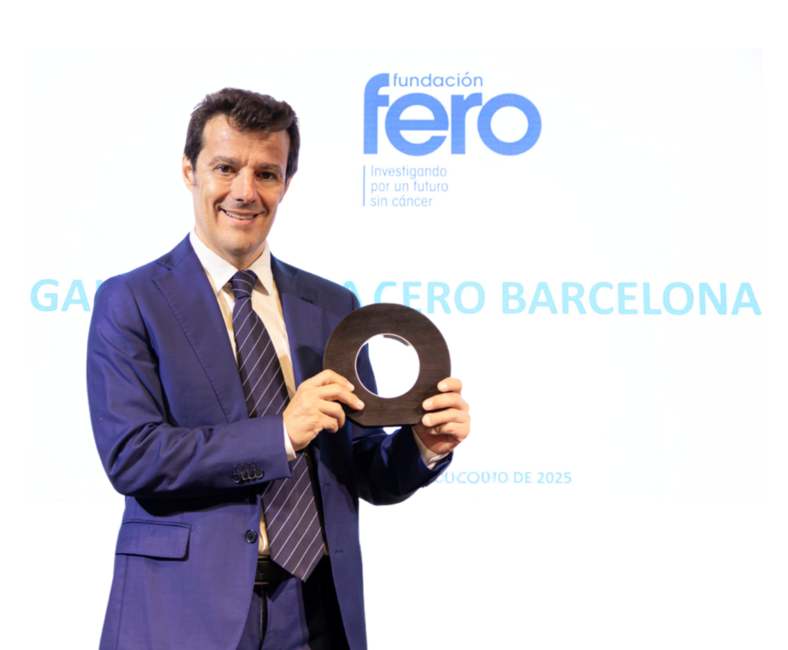Dr Pablo Menéndez receives the FERO-Aladina Paediatric Cancer Award
The FERO Foundation has held the 2025 grant awards ceremony this week, aiming to support translational research projects that can be applied clinically for the benefit of cancer patients. Dr Pablo Menéndez, group leader at the Josep Carreras Leukaemia Research Institute, was one of the award recipients. Thanks to this grant, his team will develop an “enhanced” CAR-T cell immunotherapy to treat paediatric sarcomas.

The official ceremony for the 2025 FERO Foundation grants took place last Monday, 26 May, in Barcelona during a charity dinner attended by more than 830 people. This year, the Foundation has awarded five researchers, funding their translational research projects over a two-year period with the aim of facilitating clinical application for the benefit of patients.
The selected projects aim to impact the future of oncology through cutting-edge techniques and artificial intelligence, accelerating the translation of research advances into clinical practice. Among them is the project led by Dr Pablo Menéndez, head of the Stem Cell Biology, Developmental Leukaemia and Immunotherapy Group at the Josep Carreras Institute. Dr Menéndez has received the first **FERO-Aladina Paediatric Cancer Fellowship, which will support the development of a CAR-T cell-based immunotherapy to treat a type of childhood sarcoma, offering patients a long-term treatment intended to be more curative and less toxic.
A cutting-edge therapy for difficult paediatric sarcomas: “enhanced” CAR-T cell immunotherapy
Bone and soft tissue sarcomas (BSTS) primarily affect children and young people. When metastatic or treatment-resistant, their prognosis is poor. In response to this challenge, Dr Pablo Menéndez’s team is proposing an innovative therapeutic strategy based on “enhanced” CAR-T cells that are capable not only of attacking the tumour, but also of deactivating the surrounding protective environment.
CAR-T therapies have proven effective in leukaemia, but their application in solid tumours such as sarcomas is significantly more complex. One of the major hurdles is the so-called immunosuppressive tumour microenvironment, which “switches off” the body's immune defences. To overcome this, the team has developed CAR-T cells targeting a receptor present in these sarcomas, which have already shown efficacy in destroying tumours in preclinical animal models.
The key breakthrough: these CAR-T cells are “enhanced” with a decoy of a specific receptor designed to block a pathway exploited by tumours to suppress the immune response. This approach not only boosts the direct attack on the tumour but also modifies the immunosuppressive microenvironment to make it more conducive to an effective immune response.
“Our project aims to expand this strategy to other types of sarcomas, optimise cell design, and, hopefully, lay the groundwork for a clinical trial. With the right technological, regulatory and business support in Spain, we may even be able to establish a spin-off to attract private investment and bring this therapy closer to patients,” explains Pablo Menéndez. “We are confident not only in the success of this therapy, but also that it will revolutionise this form of childhood cancer, which currently lacks immunotherapeutic options, offering more effective and personalised treatments — and that fills us with hope and excitement.”